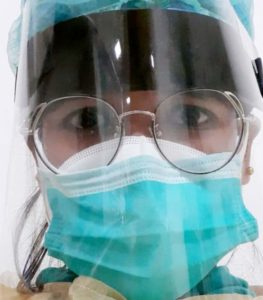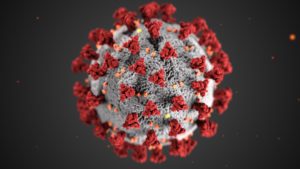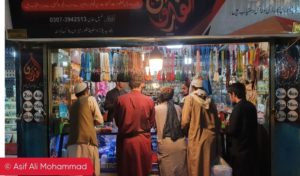Rana Adnan

Christian philanthropists, social workers, and community activists contributed their time, resources, and efforts to reach out to people in need during COVID-19.
“Our team covered 13 districts across South Punjab, where around 7000 families were provided with food packages and cash grants including Muslims, to manage the economic crisis in the wake of COVID-19”, told Bishop Leo Rodrick Paul. Bishop Paul chairs the Multan DioceseTrust Association (MDTA), a development wing of the Protestant Diocese of Church of Multan. “Our relief fund campaign was initiated on a self-help basis and we did everything we could possibly do, using the available resources”, he added.
“Around 1700 families living in urban slums of Islamabad and Rawalpindi were handed out ration bags”, told Pastor Samson Sohail, Executive Director of the United Council of Churches (UCC). “Different groups of individuals including sanitary workers, pastors, transgenders and differently-abled persons were provided support through cash grants, regardless of their religious beliefs”, he informed.

“While providing financial assistance we covered different regions across Pakistan including cities of Rawalpindi, Rahim Yar Khan, Multan, Khanewal, Jhelum, Faisalabad, Lahore and Kasur in Punjab, Peshawar, Mansehra, Shangla and Swat in Khyber Pakhtunkhwa, Mirpurkhas, Sanghar, Tando Allah Yar, Umerkot and Thar in Sindh, Quetta in Balochistan, AJK in Muzaffarabad and Federal Capital – and Islamabad”, told Asher Gill who is currently working as a Program Manager for Disaster Relief and Management with Pak Mission Society. “Through this outreach, more than 5000 families were supported”, he added.
We initiated the campaign upon learning that non-Muslim minorities in Pakistan are facing discrimination in getting COVID-19 relief funds due to their religious and ethnic origins”Asher Gill – works with Pak Mission SocietySHARE18TWEET
“Most of the beneficiaries were Christians however non-Christians were also facilitated. We initiated the campaign upon learning that non-Muslim minorities in Pakistan are facing discrimination in getting COVID-19 relief funds due to their religious and ethnic origins”, explained Gill.

While talking about the challenges, Gill informed that they faced a shortage of funds and resources from the donor organizations as the financial implications of COVID-19 certainly had a global dimension. “Choosing beneficiaries to provide assistance and mobilizing the available resources was also an exhausting process”, said Gill.
“I saw Muslim and Christian organizations work together to provide relief and build community resilience”Gill – Program manager at Pakistan Mission SocietySHARE18TWEET
“Making door to door visits of the destitute and neglected households was not easy as there was a risk of coronavirus spread”, told Pastor Samson. “Identifying and mapping people who were actually in need came as a challenge due to complex community dynamics”, he further added. “Another issue was nonobservance of the SOPs that was putting everyone’s safety at risk. Besides in some cases, the identities of beneficiaries were also revealed without their consent that breached their privacy and confidentiality”, told Samson. “Strangely, the spread of misinformation about the deadly disease only added to the trouble”, he said.

The activists also appreciated the positive things they observed while providing services to the communities. “I saw Muslim and Christian organizations work together to provide relief and build community resilience”, said Gill. Pastor Samson also endorsed the thought that networking among relief organizations has improved during the pandemic.
Bishop Leo recommended that churches, mosques and temples have played an important role during COVID-19 as people gather there to perform religious or spiritual rituals, therefore these platforms can be utilized for capacity building of people to cope with any disaster situation in the future. He also recommended that digital communication platforms like social media can be used for the spread of valid information throughout the masses.



